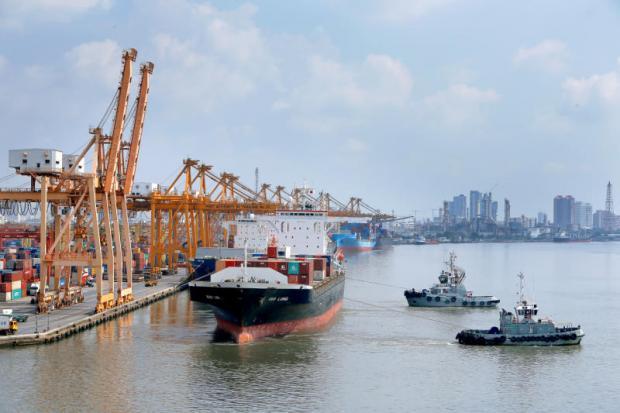Thailand: May exports quell worries
Exporters are more upbeat about the sector’s prospects after May’s strong performance, conceding that growth in shipments could hit 5% as projected by the government.
Visit Limlurcha, vice-chairman of the Thai National Shippers’ Council, says Thai exports may manage to grow more than the 3.5% growth forecast by the council if the world economy continues to expand throughout the year.
The Commerce Ministry reported on June 22 that Thai exports jumped 13.2% year-on-year in May to UScopy9.9 billion (676 billion baht), the highest in more than four years, as the global economic recovery helped boost demand and shrug off the impact of the baht’s appreciation.
The rise in May exports was far above the 8.4% growth in April, driven by increases in demand for several products.
Agricultural and agribusiness exports rose 17.6% year-on-year in May, fetching $3.24 billion, boosted by higher shipments of rubber, sugar, rice, vegetables and fresh fruits – particularly durian, shipments of which jumped 159% from the same period last year.
Exports of industrial products rose by 12.8% to copy5.6 billion, led by processed rubber, automobiles, electric circuits, computers and components, while jewellery remained in negative territory.
The rise in Thai exports bucked expectations. Exporters had been worried about the stronger baht, which continues to rise against the US dollar and make Thai products less competitive.
For the first five months of 2017, exports rose 7.2% to $93.26 billion, while imports increased accordingly by 15.2% to $88.21 billion, yielding a trade surplus of $5.05 billion for the period.
According to Mr Visit, Thai exports are expected to still fare quite well in the second half of the year, at no less than copy8.5 billion a month.
But he warned of several risk factors, particularly regarding foreign exchange rates, that still need close monitoring.
Mr Visit said the baht is expected to continue appreciating in the second half, affecting Thailand’s production costs and competitiveness.
More importantly, he said global crude oil and rubber prices are still staying relatively low, bringing down the prices of other commodity prices such as finished oil, plastic pellets, chemicals, rubber wood and furniture.
Nonetheless, Finance Minister Apisak Tantivorawong said the Finance Ministry and the Bank of Thailand mutually agreed yesterday that the strong baht had only marginally affected Thai operators’ competitive edge, while no sign of a bubble had been detected in property market.
The baht is still moving in line with regional peers, so it does not adversely affect the competitiveness of Thai exporters, Mr Apisak said after a meeting with Bank of Thailand governor Veerathai Santiprabhob and Deputy Prime Minister Somkid Jatusripitak.
“The central bank [governor] told us that the overall economy is improving, while the baht is still moving in line with regional currencies,” Mr Apisak said. “He also said that the weaker US dollar largely contributes to the firmer baht and other currencies in the regional are also appreciating, so competitiveness will not be blunted significantly. If the baht alone is gaining, it will be difficult for us.”
The baht has been among the best-performing currencies in Asia, rising 5.2% against the greenback this year. In comparison, the Taiwanese dollar surged 6.3%, the Korean won advanced 5.1% and the Malaysian ringgit rose 4.5%. The baht’s run-up has stoked worries that it will stall nascent export growth.
The Commerce Ministry reported last week that Thai exports jumped 13.2% year-on-year in May to copy9.9 billion, the highest in more than four years, as the global economic recovery helped boost demand and shrug off the impact of the baht’s appreciation.
The rise in May exports was far above the 8.4% growth in April, driven by increases in demand for several products.
The incumbent Finance Minister also referred to Mr Veerathai as saying the real estate oversupply does not indicate the formation of a bubble.
Former Bank of Thailand governor Prasarn Trairatvorakul this week flashed a warning that cooperatives and an unbalanced property sector will be the sources that trigger a new financial crisis if regulators fail to tighten rules and regulations in a pre-emptive move to keep problems from spiralling out of control.
Don Nakornthab, senior director in the macroeconomic and monetary policy department at the Bank of Thailand, said that the baht is among few regional currencies that continued to strengthen in June, though the baht moved in line with regional peers in May.
“Thailand’s current account surplus remains high compared to our neighbours as a result of the recovery in exports, pushing the baht to appreciate further,” he said.
Responding to exporters’ concerns, he said the baht wasn’t even the best-performing currency in the region this year.
Source: http://www.bangkokpost.com/business/news/1278775/may-exports-quell-worries


 Thailand
Thailand




